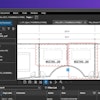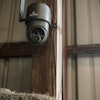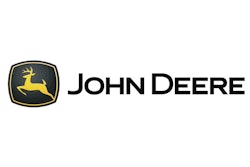It is Friday, September 11, 2009, and I am leaving the Associated Equipment Distributors's (AED) annual Executive Forum, which was presented in Chicago. As I'm sure most of you know, AED represents the dealers that sell construction equipment and the manufacturers that produce and sell through dedicated and independent dealers.
This year's forum covered the state of the construction industry; the state of the banking system as it relates to our industry, sources of capital, financing for equipment purchases and contractor/dealer relations; an update on stimulus spending; and, most importantly, when various segments of the industry will start to see a recovery that is meaningful in terms of available work. When I stop to think about it, any contractor would have been right at home at this forum and found the content beneficial.
The forum moderator asked all of us to write down three "takeaways" from each session. Since there were 10 sessions, that's a lot of takeaways. Consequently, I will address only the top three with the highest importance.
#1: Get out a clean sheet of paper
The message here is that we are not in what you call a cyclical adjustment. In this industry, we are in a depression, and it will take some time and effort to work our way out of it. What that means this time around is things are going to be different from this point forward, and you will need to adjust how you do business if you hope to prosper as a contractor.
So sit down with a pad of paper or your notebook and reinvent your business proposition going forward. In addition, examine every line item on your financial statements and ask yourself if you need this service or material, and if there is a more efficient way to get it. The consensus is contractors have taken their eye off the ball and have developed a lot of bad habits that will be impossible to maintain going into the future.
Looking at various market segments, only road building and related government projects such as bridges, environmental projects, schools and hospitals have any life in them. It appears the housing market is bottoming out, but even a 15% increase means nothing from where they are starting out. Commercial construction? Forget about it. A recovery is so far out, I can't see it.
As far as stimulus funds are concerned, they seem to be in purgatory somewhere. As mentioned earlier, road projects are moving along and anyone in that arena should be in better shape than their peers. We were told the stimulus money will make its way to other aspects of construction, but when and where is unknown. Available statistics can tell you which states received funding and how much, if that information is useful to you.
The point here is that this is a long recovery and you have to find a way to make it, which will require a lower cost base and a plan you can work from to keep you on track. The plan will be required not only for your management purposes, but for financing purposes, as well. Better have those books in place.
Everybody is looking to find ways to make a buck - new ideas, more efficient results, lower fixed costs and necessary financing. How are you going to fit into this new market environment?
#2: It's reality check time RE: equipment
What does your equipment really cost you? Do you know these figures and how to calculate them? Are you able to determine the equipment-related impact on both your balance sheet and income statement - and let's not forget cash flow? If not, you should.
Information coming out of the forum regarding equipment includes:
- Interest rates are expected to start increasing in mid-2010. Not knowing whether financing standards will ease up by then, there is some merit in looking over your "real" equipment needs and buying now before rates increase.
- Used equipment prices may start firming up because of the weak dollar. Not only is the inventory going down, foreign interest in auction markets is way up. So, if there is a need, now may be the time to look for that gem of a low-hour, late-model unit while the pricing is still good. Used units are available from dealers, auctions and rental companies.
On the other hand, your "reality check" may convince you that the current level of equipment ownership is not maintainable if you hope to eek out profits the next few years. If that's the case, get it ready to sell and do it once prices firm up, or sooner if you need to.
Work out rental arrangements with your local dealer or rental company. And see if they can provide ongoing maintenance for your remaining equipment to get you out of the maintenance business.
#3: Good communication = financing opportunities
The No. 1 issue raised at the forum is the lack of financing and a lack of understanding of what it takes to get financing. The Credit Panel addressed these topics and offered insight not only to dealers but contractors, as well.
Work with your current bank. Communicate and keep them informed. No surprises, please. Have adequate cash flow projections to share with them. Supply a balance sheet with proper support.
Clean up the balance sheet. This goes back to Takeaway #1. Hint: The less debt you have on your books the better. Fewer assets also help get your debt-to-equity ratio in line.
Get rid of as many fixed costs as you can. Period.
Get help with financing from your dealer or rental company. As you know, many times there are deals on new equipment with a lower monthly commitment than you would have buying a used unit.
They tell us financing is available and that credit parameters have not changed. I believe the first part, but not the second. A clean balance sheet along with a reasonable cash flow projection, presented by management in a professional manner, is key to getting financing. Your dealer should be able to help you out here.
There was also a contractor panel as part of the forum. The contractors did not center on price as the primary driver when buying equipment. Service, support and parts availability all came in above equipment pricing.
In today's environment, working with dealers and rental companies that can make you more efficient will more than offset a price differential on the equipment. You need to be able to keep moving; have your equipment working; get financing when you need it; and receive above-average support and ideas to help you improve your efficiency and profitability.
How does the clean sheet of paper look now? A lot different from the status quo, I hope.



















